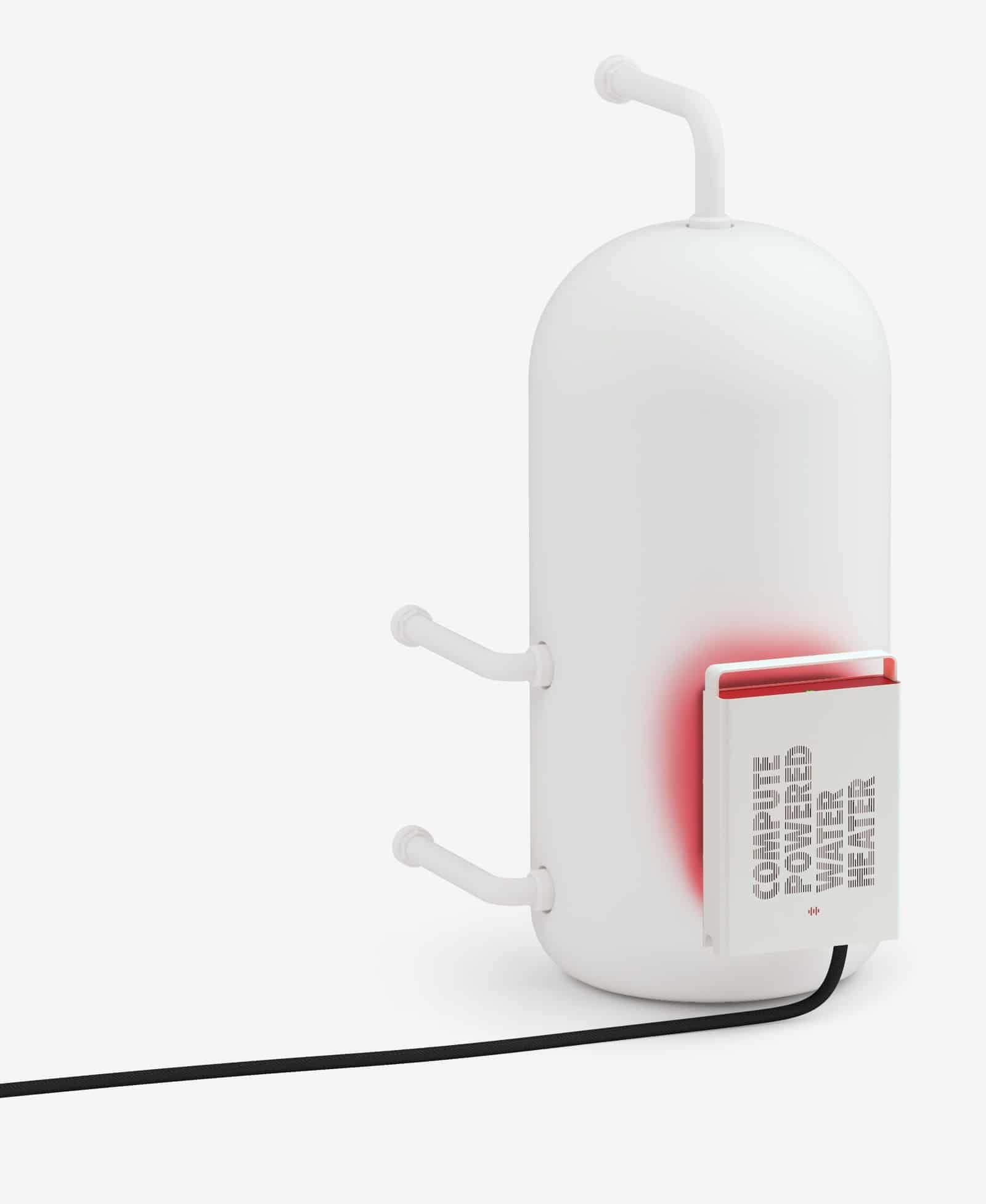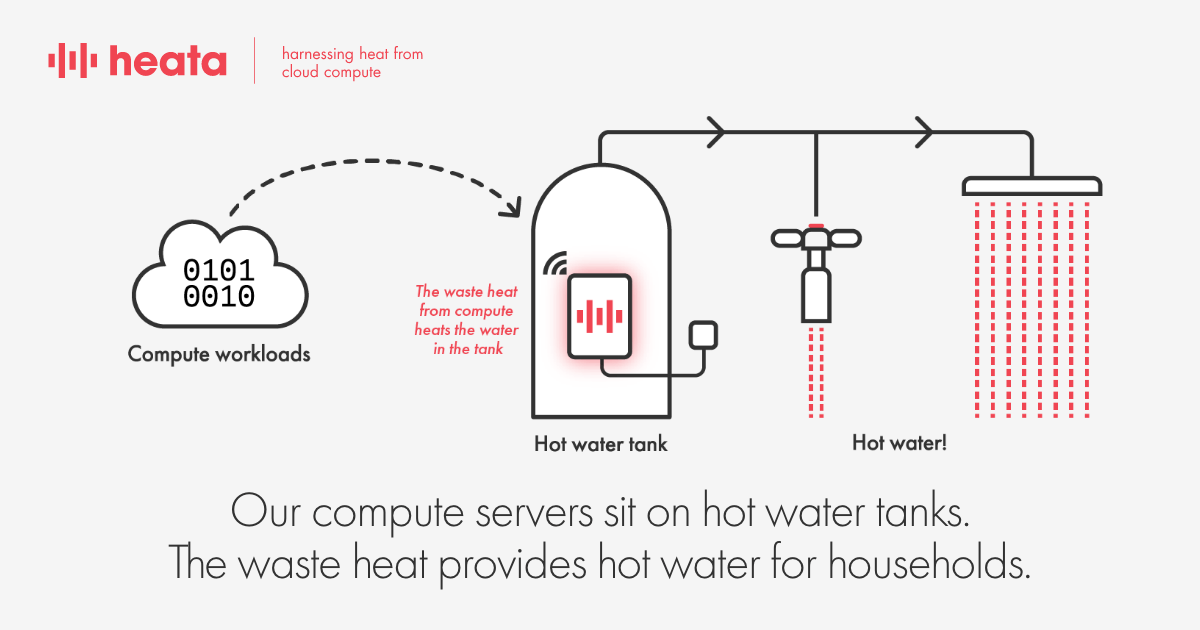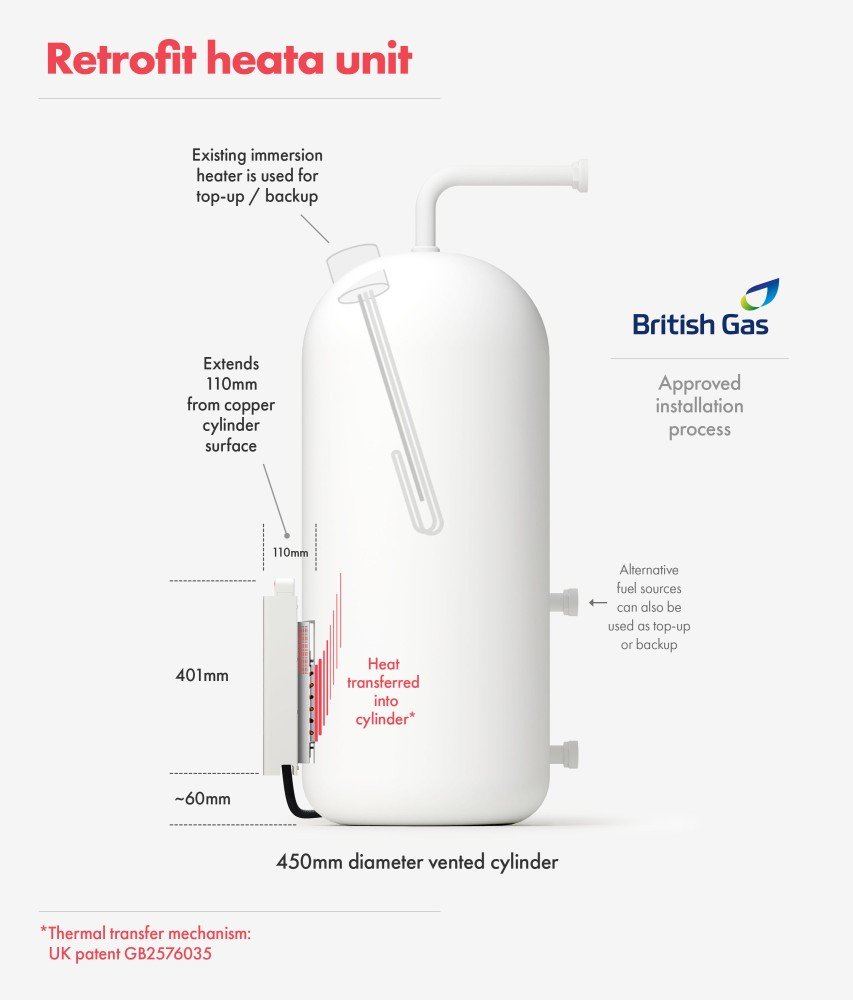The last couple of years have seen Britons experience a rising cost of living, especially concerning home costs like rent and utilities. In an ideal world, homes are built to withstand changing temperatures, making residents less vulnerable to volatile energy prices.
However, startups are looking at ways to address rising energy costs. One such company is Heata, which has developed a novel way to use the waste heat generated by servers by fitting a computer server to a household's hot water tank or boiler to cut energy bills for residents.
Heata originally started as an in-house project within energy company British Gas in 2017, but has since been spun out with investment from British Gas, Innovate UK, and cloud-native software company Civo.
Last month the company closed a £1 million Seed funding round led by Mark Boost of Civo, with remaining contributions from Green Angel Syndicate and other angel investors.
I spoke to co-founder Mike Paisley, to learn more.
From bitcoin to gas
Paisley explained that the company originally explored the idea using the surplus heat generated from bitcoin mining rigs —to heat homes —- already statements like Heatbit and Ming Energy have successfully demonstrated that this idea can not only save heating costs but generate income.
"So we put a bitcoin miner into a barrel of mineral oil, hooked up with a pump to an oil-filled radiator.
We took that to the meeting with British Gas, who were a bit suspicious of what we were bringing into the building, but they loved the fact that you could see that it was generating money and generating free heat as a byproduct.while generating heat was of interest to them, So we got a little bit of funding to pursue the project further."
He explained that beyond that, the team wasn't a fan of bitcoin mining due to its heavy resource use, volatility and the reality that "space heating is only required for half the year, which means you have to waste the heat for half the year. It makes more sense to be able to reuse that heat all year round."
"

So the company pivoted to hot water with the heata unit, a powerful compute server that is attached to domestic hot water cylinders by a qualified electrician (no plumbing is required). It harnesses the heat from the processing and transfers it into the water, providing the household with free hot water.

Reusing the heat and removing cooling energy costs usually associated with servers (for example, in big data centres) reduces the carbon footprint of the processing it undertakes by ~56 percent vs a typical data centre + hot water heating, turning a compute problem into a social benefit.

The heata unit can deliver up to 4.8kWh of hot water per day, at expected utilisation levels the heata unit will deliver ~3.6kWh of hot water per day. This is approximately 80% of the hot water required by an average UK household. This can save an average household up to £450 annually.
Who pays for the electricity the heata unit uses?
Heata pays for the electricity to run the device — the electricity used by the unit is metered and the resident is credited with the amount used.
The heata unit uses its own connection, typically fibre but with the option to use mobile networks, although early trials used the residents' broadband. Paisley sees a future that could tie its efforts in with the bigger issues of digital exclusivitye where it, for example, installs a fibre connection in social housing and can include accessible broadband as part of its installations.
Heata has partnered with Civo to pilot Heata's units as edge nodes for Civo customers to execute workloads. According to Civo CEO, Mark Boost:
"Civo's focus on Kubernetes means that workloads can be deployed and managed using Suse Rancher as the orchestration platform."
The heata network uses open source VM / container orchestration, identifying which units are available for work, their utilisation, and network connectivity.
Regarding the compute side, Paisley explains, "we are not as tightly connected as the servers in a data centre, which means we process high-volume, repetitive batch jobs that don't require real-time processing."
Examples include 3D rendering, climate modelling, Monte Carlo simulations, finite element analysis, computational fluid dynamics, computational finance and risk analysis, higher education research and supercomputing, medical research and data processing.
The initiative rolled out at scale could also benefit owners of rental accommodation. In the UK, landlords are legally required to comply with an Energy Performance Certificate (EPC) to meet specific energy efficiency standards.
I wondered if there are any associated security issues. Paisley told me the company is working with software company SUSE and Securelinx, to leverage SUSE’s secure edge platform, providing enterprise-grade security in physically exposed public infrastructure, e.g. mobile base stations. Further, compute customer jobs are unaware of, and inaccessible from other customer jobs through VM isolation.
Clients can request single tenancy if preferred. Further, residents cannot alter the unit, which comes with chassis intruder alarms, and all peripherals are disabled and physically inaccessible.
This is just the beginning of a bigger movement
Let's be clear: Heata is still in its early stages. It's been running trials in Surrey for over a year. It would be easy to eschew the project as low-impact and low-cost saving.
But it's not promising to solve every home sustainability challenge. But it shows a way forward in sustainability, and it's particularly innovative for people living in rental accommodation.
Renters are traditionally excluded from much of the mainstream makers of sustainable living — as they cannot make permanent structural challenges to their dwelling, such as installing solar hot water tanks, wall insulation, or double glazing.
The project would be particularly effective at scale across social or government housing.
Heata is currently looking to onboard more compute customers, and as Paisley asserts:
“In the future, heat reuse from compute could be a significant part of our energy landscape. We can imagine heata supporting a wide range of use cases, expanding our impact as a result."
Heata is not the only initiative focused on heating homes with reused energy.
In the Netherlands, Switch Datacenters compensates its datacentre customers financially for returning residual heat, using existing Direct Liquid Cooling (DLC) technologies to cool servers.
The servers heat the cooling water to temperatures between 40 to 60 degrees Celsius, which can immediately be used for heating offices or homes. Customers choosing DLC cooling receive a cash incentive equal to 20 to 30 percent of their costs for electricity.
In Sweden, Stockholm Data Parks spearheaded an initiative where heat recovery from data centres, industry, food stores, cool storage, ice rinks and substations is used to warm people's homes.
The company aims to cover 10 percent of Stockholm's heating needs with recovered and reused heat by 2025.
Lead image: Heata. Photo: Uncredited.



Would you like to write the first comment?
Login to post comments